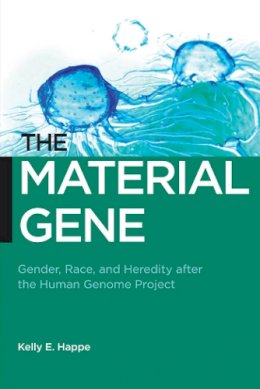
Stock image for illustration purposes only - book cover, edition or condition may vary.
The Material Gene: Gender, Race, and Heredity after the Human Genome Project (Biopolitics: Medicine, Technoscience, and Health in the 21st Century)
Kelly E. Happe
€ 41.07
FREE Delivery in Ireland
Description for The Material Gene: Gender, Race, and Heredity after the Human Genome Project (Biopolitics: Medicine, Technoscience, and Health in the 21st Century)
Paperback.
Winner of the 2014 Diamond Anniversary Book Award
Finalist for the 2014 National Communications Association Critical and Cultural Studies Division Book of the Year Award
In 2000, the National Human Genome Research Institute announced the completion of a “draft” of the human genome, the sequence information of nearly all 3 billion base pairs of DNA. Since then, interest in the hereditary basis of disease has increased considerably. In The Material Gene, Kelly E. Happe considers the broad implications of this development by treating “heredity” as both a scientific and political concept. Beginning with the argument that eugenics was ... Read more
Product Details
Format
Paperback
Publication date
2013
Publisher
NYU Press
Number of pages
303
Condition
New
Number of Pages
303
Place of Publication
New York, United States
ISBN
9780814790687
SKU
V9780814790687
Shipping Time
Usually ships in 7 to 11 working days
Ref
99-50
About Kelly E. Happe
Kelly E. Happe is Associate Professor in the Department of Communication Studies and the Institute for Women's Studies at the University of Georgia. She is the author of The Material Gene: Gender, Race, and Heredity After the Human Genome Project and co-editor of Biocitizenship: The Politics of Bodies, Governance, and Power.
Reviews for The Material Gene: Gender, Race, and Heredity after the Human Genome Project (Biopolitics: Medicine, Technoscience, and Health in the 21st Century)
[Happes] is a narrative of unbroken continuity between the eugenic bio-racism of old and current genomic research whereby the complex breast cancer experience of black women is reduced to a racial predisposition. Her argument is clear: in her view, the geneticization of breast cancer equals a highly problematic depoliticization of the disease, its etiology and specific forms of progression.
... Read more
... Read more
